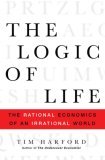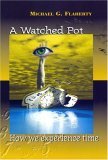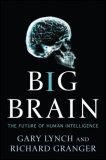January 24, 2008
Consciousness, Literature and Theatre: Theory and Beyond (Studies in Literature and Religion) by Peter Malekin and Ralph Yarrow (St. Martin’s Press, 1997)
by Peter Malekin and Ralph Yarrow (St. Martin’s Press, 1997)
This is a book that I read some time ago and took some notes on…..
We have so far sought to establish a model of the mind in which activity takes place on a ground of silence and a model of experiencing as process in which the mind and physiology move toward silence and back towards vigorous activity in a rhythmic pulsation (a factor which has implications for the function of metre and rhythm in verse). All rhythm is simply polarity; in this case the polarity of sound or activity and silence or nonactivity, laid as it were on its side and extended through time as we experience it. The polarity is, however, not a division, for each pole contains and implies the other. Literary work uses this rhythm, basic to all experience, and, partly by limiting its scope, gives it a controlled coherence that can powerfully affect, not only emotions and ideas, but the fabric of consciousness itself. One of its effects can be the activation of the reader’s own creativity, the tendency to bring the dynamic potentiality of silence into the flow of action in life, of which literature is merely a part. (p. 74-75)
Ralph Yarrow also has a new book coming out next month – Sacred Theatre (Intellect Books – Theatre and Consciousness)
Comments (1)
- consciousness
January 22, 2008
I’ve been experimenting with creating a combined feed for new books. My first semi-success is displayed here; it’s rather lengthy so I’m putting it after the break (click “more” – you probably know…). This has several feeds from Amazon’s “new releases” in the mind-related topics plus a del.icio.us tag feed so I can throw in some hand-picked items from time to time.
The FeedBlendr page is here in case anyone would like to subscribe or make use of it. I’m not totally satisfied with the results, mostly because the feeds from Amazon are long, so it seems like entries from only one feed are displayed on top. [Plus sometimes very slow to load I’m afraid.] Your comments and suggestions are welcome, as always.
(more…)
Comments (0)
- new books
January 20, 2008
The Logic of Life: The Rational Economics of an Irrational World by Tim Harford (author video on the Amazon page).
by Tim Harford (author video on the Amazon page).

In this deftly reasoned book, Harford argues that life is logical after all. Under the surface of everyday insanity, hidden incentives are at work, and Harford shows these incentives emerging in the most unlikely places.
Using tools ranging from animal experiments to supercomputer simulations, an ambitious new breed of economist is trying to unlock the secrets of society. The Logic of Life is the first book to map out the astonishing insights and frustrating blind spots of this new economics in a way that anyone can enjoy.
This book reminds me of Freakonomics and has gotten an endorsement from the Freakonomics blog.
The Oregonian has an interview with the author.
Author’s website
Comments (0)
- culture,new books,psychology
January 19, 2008
 A book about time for the January Book A Month Challenge:
A book about time for the January Book A Month Challenge:
A Watched Pot: How We Experience Time by Michael G. Flaherty (New York University Press, 1999)
Flaherty explores variations in the perceived passage of time from a social psychological perspective, seeking to account for three paradoxical aspects and three elementary forms of time experience. The paradoxes are (1) that time seems to pass slowly in periods that are either unusually busy or unusually empty of activity; (2) the same period can be experienced as a long time while it is happening, but a short time when it is recollected, (3) some busy periods seem to pass slowly while others seem to pass quickly. The three elementary forms of variation in time perception are protracted duration, temporal compression, and synchronicity (experience synchronized with clock time).
Protracted duration is experienced in situations involving suffering or other intense emotions, violence or danger, waiting and boredom, altered states, concentration and meditation, or shock and novelty.
Flaherty arrives at the concept of “intensity of conscious information processing” to account for the variations in experience of time, so that protracted duration is associated with high density of conscious information processing; synchronicity is experienced when the density of conscious information processing is moderate; and temporal compression is correlated with low density of conscious information processing. (p. 113)
The author started out collecting examples of protracted duration, then developed a theory to account for the variations, which he then applied to cases of temporal compression. In the conclusion, cross-cultural issues are considered, as well as the possibility of deliberate “time work” — manipulation of temporal experience as a form of creativity or self-actualization.
The book was fairly interesting but did not give me much in the way of new ideas or concepts to apply to my experience of time, as I was hoping for. Lumping time perception into three broad categories might have obscured some of the more unusual aspects of temporal experience. [Next morning’s thought – Can I change the intensity of my conscious processing to slow down or speed up perceived time?]
Comments (0)
- Book A Month Challenge,psychology
January 18, 2008
Big Brain: The Origins and Future of Human Intelligence by Gary Lynch and Richard Granger (Palgrave-MacMillan)
Our big brains, our language ability, and our intelligence make us uniquely human. But barely 10,000 years ago (a mere blip in evolutionary time) human-like creatures called “Boskops” flourished in South Africa. They possessed extraordinary features: forebrains roughly 50% larger than ours, and estimated IQs to match–far surpassing our own. Many of these huge fossil skulls have been discovered over the last century, but most of us have never heard of this scientific marvel.
Prominent neuroscientists Gary Lynch and Richard Granger compare the contents of the Boskop brain and our own brains today, and arrive at startling conclusions about our intelligence and creativity. Connecting cutting-edge theories of genetics, evolution, language, memory, learning, and intelligence, Lynch and Granger show the implications of large brains for a broad array of fields, from the current state of the art in Alzheimer’s and other brain disorders, to new advances in brain-based robots that see and converse with us, and the means by which neural prosthetics– replacement parts for the brain–are being designed and tested. The authors demystify the complexities of our brains in this fascinating and accessible book, and give us tantalizing insights into our humanity–its past, and its future.
Comments (1)
- cognitive science,mind,new books
by Peter Malekin and Ralph Yarrow (St. Martin’s Press, 1997)





